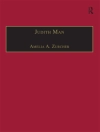Sister Carrie, by
Theodore Dreiser , is part of the
Barnes & Noble Classics
series, which offers quality editions at affordable prices to the student and the general reader, including new scholarship, thoughtful design, and pages of carefully crafted extras. Here are some of the remarkable features of
Barnes & Noble Classics:
- New introductions commissioned from todays top writers and scholars
- Biographies of the authors
- Chronologies of contemporary historical, biographical, and cultural events
- Footnotes and endnotes
- Selective discussions of imitations, parodies, poems, books, plays, paintings, operas, statuary, and films inspired by the work
- Comments by other famous authors
- Study questions to challenge the readers viewpoints and expectations
- Bibliographies for further reading
- Indices & Glossaries, when appropriate
Barnes & Noble Classics pulls together a constellation of influences—biographical, historical, and literary—to enrich each readers understanding of these enduring works.
When small-town Carrie Meeber arrives in 1890s Chicago, she cannot know what awaits. Callow, beautiful, and alone, she experiences the bitterness of temptation and hardship even as she sets her sights on a better life. Drawn by the seductive desire to rise above her social class, Carrie aspires to the top of the acting profession in New York, while the man who has become obsessed with her gambles everything for her sake and draws near the brink of destruction.
Dreiser’s first novel, Sister Carrie (1900) was inspired by the life of one of his sisters, who had eloped to New York with a disreputable lover. Its sympathetic depiction of Carrie’s love affairs shocked its publisher, whose grudging efforts won few initial readers until the book’s successful re-publication in 1907. Today it resonates with Dreiser’s clear-sighted understanding of life in the increasingly mercantile world of the big city, and with his belief in the domination of fate over free will. Particularly in the unflinching tragedy of its final chapters, the novel broke new ground in American fiction for its gritty realism and for the character of Carrie, who begins “a half-equipped little knight” and becomes a truly modern woman.
Herbert Leibowitz is the editor and publisher of Parnassus: Poetry in Review. His books include Fabricating Lives: Explorations in American Autobiography and Hart Crane: An Introduction to the Poetry. He is currently writing a critical biography of William Carlos Williams.












